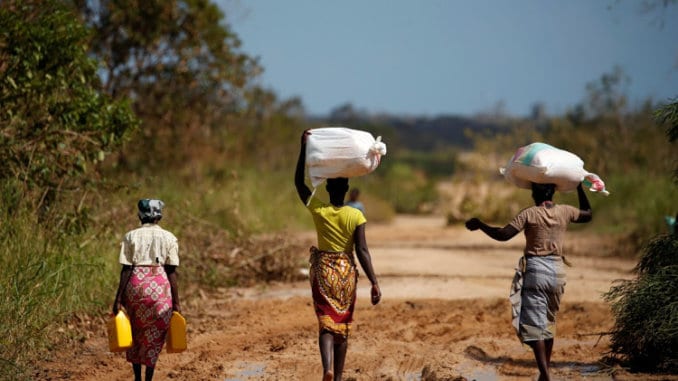A documentary released this week by the World Food Program (WFP) of the United Nations (UN) has revealed that about 8 million (60%) of the Zimbabwean population is facing serious food shortage by December 2020.
Factors cited for the food crisis facing the southern African country include the continued drought and the Covid19 pandemic that has adversely impacted on the informal sector.
According to the UN, “prolonged droughts, a battered economy and COVID-19” must be treated with a sense of emergency to avoid famine in the country.
On the other hand, the President Emmerson Mnangagwa Zanu PF administration also been blamed of compounding the crisis through the politicised distribution of food with members of the opposition facing deprivation.
Albeit this problem, President Emmerson Mnangagwa has assured the international community that there will be no politicization of food handouts as the government brings relief to hunger-stricken citizens.
While addressing foreign diplomats accredited to Zimbabwe recently Mnangagwa said while the government had achieved most of the set targets under its Transitional Stabilization Program, successive droughts and the effects of Tropical Cyclone Idai in 2019 had eroded some of the successes.
“Our immediate priority is to guarantee food security for our people. There shall be no politicization of food distribution,” he said.
Zimbabwe government officials have often been accused of favoring ruling Zanu PF party supporters and abandoning the opposition in the distribution of food aid.
According to the Heal Zimbabwe director Rashid Mahiya the problem has been worsened by the politicisation of food aid.
“Women and older people are being denied food aid on the basis of political affiliation yet there is drought and COVID-19.” Mahiya told the online Zim Morning Post.
Hilal Elver, the United Nations Special Rapporteur on the right to food, said in late 2019 that she was also concerned about reports that food relief was being distributed along partisan lines which favored supporters of the ruling party.
According to the UN, 90% of Zimbabwean children aged six months to two years are not consuming the minimum acceptable diet.
WFP in January also placed Zimbabwe among 15 critical and complex emergencies at risk of deteriorating further into crisis if there is no rapid response to the prevailing food insecurity.
Zimbabwe has not had adequate rainfall for the past 5 years and the 2019-2020 agricultural season had the worst rainfalls.
zimmorningpost













